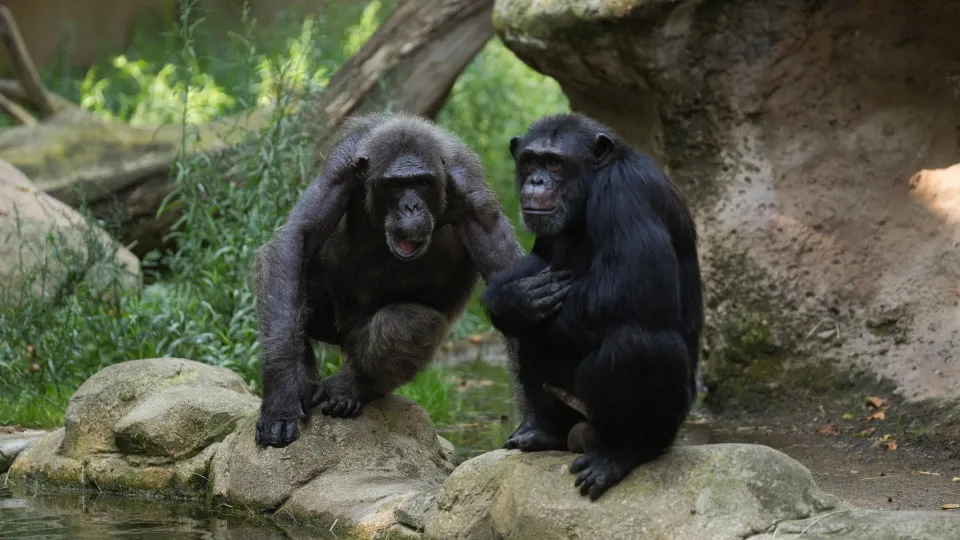
“Our closest living relatives, the chimpanzees, can also evaluate evidence to make rational decisions,” states the study led by a team of scientists from the University of California, USA, and Utrecht University, Netherlands.
The University of California announced that the study challenges the traditional view that rationality—the ability to form and revise beliefs based on evidence—is exclusive to humans.
Researchers, working at the Ngamba Island chimpanzee sanctuary in Uganda, showed two boxes to the animals, one of which contained food.
They provided the chimpanzees with a clue regarding the food-containing box.
Later, new evidence suggested that the other box might contain the food.
The scientists observed how the chimpanzees reconsidered and made new decisions based on the clues provided.
“The researchers observed the apes assessing the quality of the evidence, changing their behavior based on what they saw, and even revising their beliefs in light of new information,” the scientific journal article states.
The “flexible” reasoning observed in the animals is comparable to that of children at least four years old, according to the researchers.
To ensure the chimpanzees’ decisions were based on reasoning rather than animal instinct, the scientists conducted controlled tests and utilized computational models.
The analyses ruled out simpler explanations, such as the chimpanzees merely preferring the most recent clue or reacting to the most obvious hint.
The models confirmed that the chimpanzees’ decisions aligned with rational thought processes.
The researchers aim to extend the study to other primate species and create a comparative map of reasoning abilities across different evolutionary branches.




